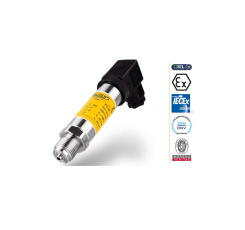
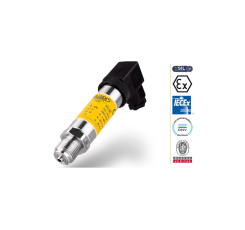
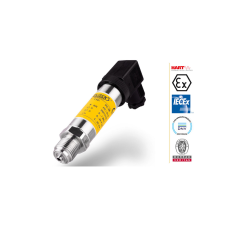
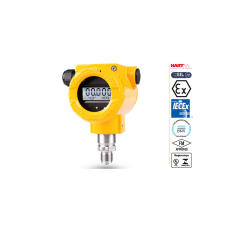
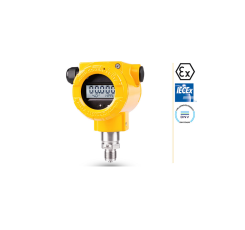
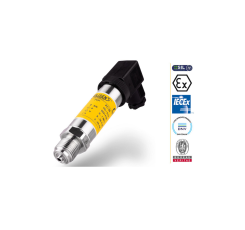
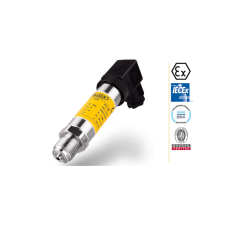
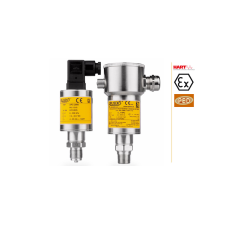
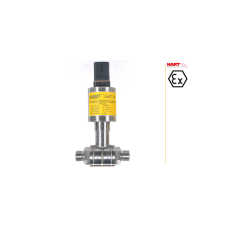
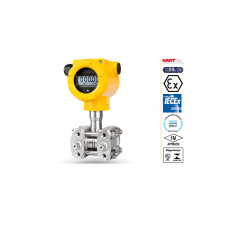
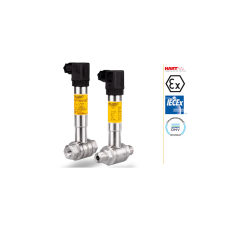
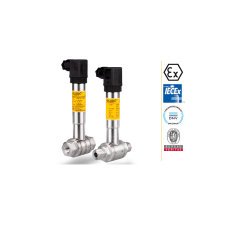
Application
PCE -228 pressure transmitter is applicable to the measurement of the pressure, underpressure and absolute pressure of gases, vapours and liquids. The active sensing element is a piezoresistant silicon sensor separated from the medium by a diaphragm and by specially selected type of manometric liquid.
Technical data
4…20 mA output signal + HART protocol
Accuracy _ ±0,1% of calibrated range
Long-term stability _ accuracy for 3 years (for the basic range)
Thermal error < ±0,08% (FSO) / 10°C
(0,1% for ranges no. 16, 17)
max. ±0,25% (FSO) in the whole compensation range (0,4% for ranges 16, 17)
Thermal compensation range -25...80°C
-40...80°C – special version
Additional electronic damping 0...30 s
Error due to supply voltage changes 0.002% (FSO) / V
Electrical parameters
Power supply 7,5...55 V DC (Ex 7,5...30 V DV)
Output signal 4...20 mA, two wire transmission
Wetted parts and diaphragms: 316Lss, Hastelloy C 276, Au
Casing: 304ss
Optional: 316ss
Operating conditions
Operating temperature range (ambient temp.) -40...85°C
Exia version: -40…80°C
Medium temperature range -40...120°C over 120°C – measurement with use an impulse line or diaphragm seals
Communication
The communication standard for data interchange with the transmitter is the Hart protocol. Communication with the transmitter is carried out with:
- a KAP-03, KAP-03Ex communicator
- some other Hart type communicators,(*)
- a PC using an HART/USB converter and Raport 2 configuration software.
The data interchange with the transmitter enables users to:
- identify the transmitter
configure the output parameters:
- measurement units and the values of the start points and end points at the measurement range
- damping time constant
- conversion characteristic (inversion, user's non-linear characteristic) read the currently measured pressure value of the output current and the percentage output control level force an output current with a set value calibrate the transmitter in relation to a model pressure
Installation
The transmitter is not heavy, so it can be installed on the installation without additional mounting bracket. When the pressure of steam or other hot media is measured, a siphon or impulse line should be used. The needle valve placed upstream the transmitter simplifies installation process and enables the zero point adjustment or the transmitter replacement. The transmitter's electrical connections should be performed with twisted cable. The place for the communicator should be assigned before the communicator installation.













